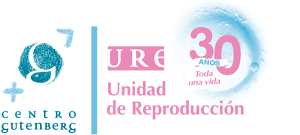Egg freezing: frequently asked questions about this assisted reproduction treatment

Vitrification is a rapid freezing technique for eggs and embryos. It involves subjecting them to a sudden drop in temperature, to negative 196 degrees Celsius, in a liquid nitrogen tank. With this freezing technique no damage is caused to the egg or the cells of the embryo, and it’s a process we carry out on a daily basis at our fertility clinic in Spain in order to preserve eggs and embryos.
Keeping in mind that a female’s fertility declines as she ages, especially after 35-37 years old, as well as the fact that women are waiting increasingly longer to have children, egg freezing is a good alternative. Thanks to this technique we can safely preserve eggs so that women can postpone motherhood until the time is right.
On the other hand, fertility preservation treatment is also effective and indicated in specific situations. A good example is a woman who has been diagnosed with cancer and who will be undergoing radiotherapy or chemotherapy treatment. As we know these treatments will have a detrimental impact on the quantity and quality of eggs, vitrification can help patients preserve their fertility before receiving cancer treatment.
URE Centro Gutenberg was the first assisted reproduction clinic authorised to use this technique in Malaga in 2007. Since then, many patients have trusted in us and have made the decision to preserve their fertility for after cancer treatment.
Some time ago we talked to you about egg freezing and what it involves in an article about preservation of female fertility. Today we are going to share some of the questions we receive from future moms when they are about to embark on this treatment process with us.
What is the ideal age to preserve your fertility?
Like we’ve said on several occasions, a female’s fertility begins to decline drastically around 35-37 years of age. This is the age when IVF success rates also start to fall.
By the age of 40, a woman’s chances of getting pregnant with her own eggs are no higher than 20% with IVF treatment. Once a woman turns 44, the likelihood of success in a cycle of IVF with own eggs is almost zero.
For these reasons, the ideal age we recommend for egg freezing and preservation of fertility is around 35 years old.
What type of medical testing is necessary before a cycle of egg freezing?
In general you’ll require a gynaecological check-up and/or an anti-müllerian hormone analysis. This way we will be able to assess your ovarian reserve.
You will also need to undergo basic analyses as well as serology tests for HIV, Hepatitis B and C and Syphilis.
How long does egg freezing treatment take?
To get started, your ovaries will be stimulated by taking medication that is administered subcutaneously. This treatment normally begins with the patient’s period and lasts approximately 10 days.
Three to four ultrasound scans and some blood tests will also be necessary to assess how well the ovaries are responding to treatment and then arrange the day for egg retrieval.
Is egg collection painful?
Egg retrieval is a surgical procedure that requires sedation and lasts around 15 to 20 minutes. This ultrasound-guided process is performed through the vagina and the patient will not feel any pain.
Will I need to rest after egg collection?
As anaesthesia will be utilised we recommend rest and relaxation for about 24 hours following egg collection.
Will egg freezing treatment impact my future fertility?
No. Ovarian stimulation, whether it be for fertility treatment such as in vitro fertilisation (IVF), or for egg donation or egg freezing in order to preserve your fertility, will not impact your future fertility.
Do all frozen eggs survive the thawing process?
The survival rate of eggs after thawing is around 75 to 100%.
Normally this rate is as high as 90% for women under the age of 35. It drops to 80.8% for women between the ages of 35 and 39 and falls to 75-80% for women over the age of 40.
Are pregnancy rates the same as with fresh eggs?
Our experience, as well as scientific literature published over recent years, shows similar pregnancy rates in cycles of in vitro fertilisation with frozen eggs and fresh eggs.
How long can the eggs stay frozen?
Eggs can remain frozen indefinitely, as there has been no evidence indicating that longer storage periods result in lower survival rates and/or lower quality after thawing.
Until what age can I use my frozen eggs?
While there is no age limit for undergoing assisted reproduction treatment in Spain at present, there is a general consensus among the different clinics specialising in assisted reproduction.
Ethically speaking, the age limit is 50 years old for the female, mainly due to the risks associated with pregnancy in women of advanced maternal age.
Will I need to have a partner in order to use my frozen eggs?
No. The frozen eggs can be used in a cycle of IVF with your partner’s sperm or with sperm from an anonymous donor sperm bank.
Have we answered all your questions? Are you still unclear on anything relating to egg freezing? If you are, contact us!

